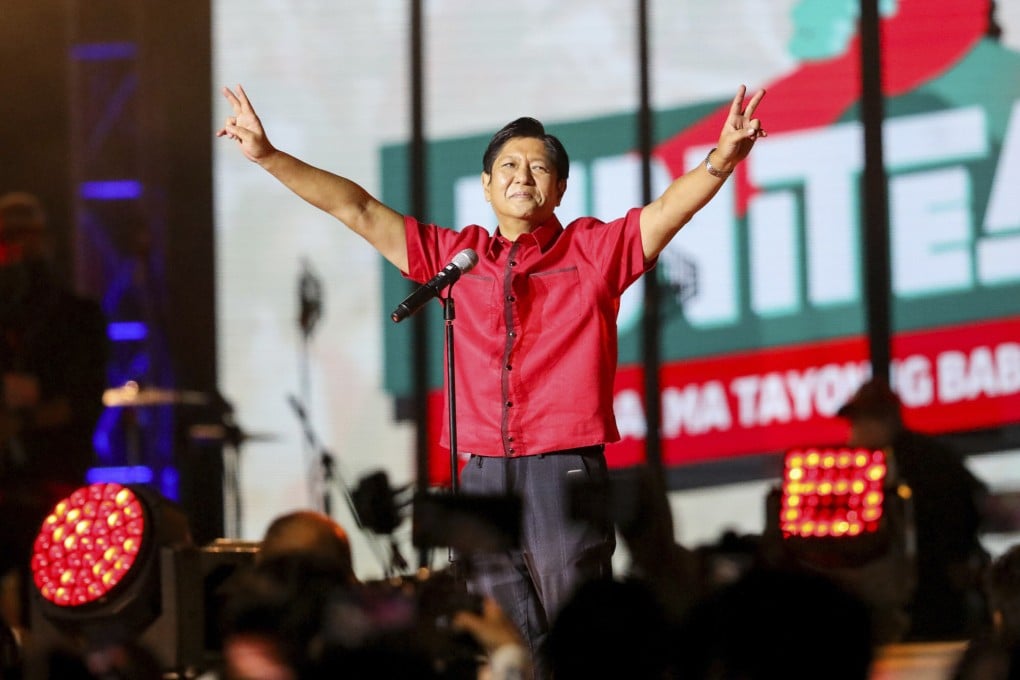Philippine election: why is front runner Bongbong Marcos Jnr so hands-off, wary of debates and pressing the public’s flesh?
- Son of murderous late dictator avoiding media interviews and taking opponents on, while recent viral video showed him recoiling at a fan’s touch
- Experts say his team want to avoid jeopardising comfortable lead, assisted by his wealthy family’s well-oiled online disinformation campaign

With only two months left before the May 9 presidential elections, the candidate leading the polls continues to avoid debating his opponents and doing hard interviews with the press.
On February 27, Ferdinand “Bongbong” Marcos Jnr, 64, refused to join nine other presidential candidates in a debate sponsored by CNN Philippines. He said he had a “busy schedule”.
On January 22 he was a no-show in a three-hour interview featuring four other candidates with the GMA Network TV station. Marcos’ spokesman Vic Rodriguez claimed the interview would have been “biased” against his client.
Announcing that the Commission on Elections (Comelec) will host a presidential debate on March 17, spokesman James Jimenez said it was “important that candidates take the opportunity to speak to the public, to present their plans for government”.
Earlier he said a candidate’s refusal to attend a debate “could be a red flag for the voters”.
What is unfolding seems to be part of a deliberate policy where Marcos will do nothing to endanger his high popularity numbers. Polls taken in January show he has a comfortable lead: a Pulse Asia Research survey reported 60 per cent of respondents would vote for Marcos for president, and only 16 per cent – a distant second – would choose his closest opponent, current Vice-President Leni Robredo.

Political strategist Alan German, president of Agents International Public Relations, said Marcos’ ratings are high because of the disinformation the Marcos family have spread on vast online networks.
“They’ve been at it a long time, they’ve had the advantage of time. They’ve been propagating their very well oiled social media machinery.”
The main issue with Marcos junior is that he is the only son and namesake of the brutal dictator whose 14-year martial law regime tortured and murdered thousands of Filipinos.
